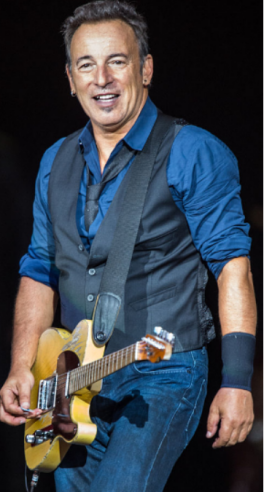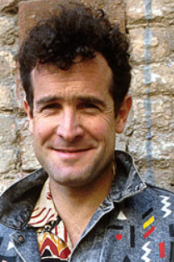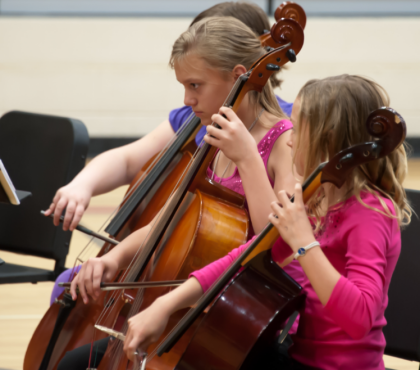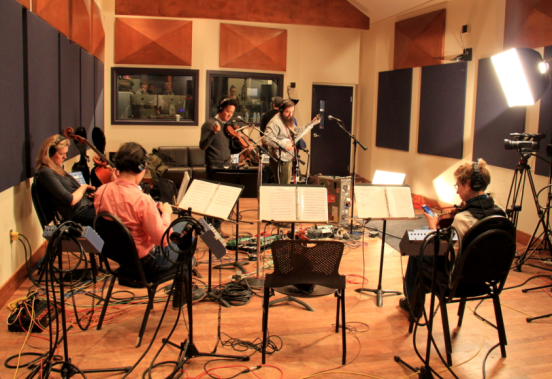Your personal music search space.
Augment your understanding of music.

YMUSIC SEARCH ENGINE
______________________________________________________________________________

Music is more than a casual leisure, an art or the new way to increase the benefits of a company. It is all of that and even more. The music industry is a rich ecosystem in which everyone and everything has a specific place. From the composer to the listener, from art to science, get insights on each field of music, learning about human behavior or consciousness. A place is also given to ethical questions.
MUSICAL CULTURE IN ITS VARIOUS ASPECTS
Bruce Springsteen
Johnny Clegg
MUSIC AND SOCIAL CHANGE


Independently of any music genre, discover which types of sounds raise awareness in your mind. Try the YMusic search engine, your free personal assistant (it includes musical criteria to select music) and know more about music.
Music, war and public opinion: the case of the Vietnam War
Musical practices and political consciousness during times of war
The potential of music in situations such as war or civil conflict is evident. A musician can amplify an official message and be a popular medium. Thus music becomes a privileged form of expression for communities in conflict. And even when the conflict has ended, music recalls the course of action. In that kind of context, musical fanfares, marching bands, and parades have a role to play. Young people join such musical groups because it gives them a feeling of security and a sense of identity, be it at the personal or at the social level.
In itself, it is not surprising because it is certain that musical practice is linked to social normativity and that its effects can be studied rationally. And as musicians are writing songs about social issues that are important to them, music can become the incarnation of a national consciousness in the field of politics. It was the case for instance during the Vietnam War, a very long war which lasted for 20 years and opposed North Vietnam, which was communist, and South Vietnam, whose Prime Minister had embraced the Christian faith and dedicated his country to the Virgin Mary.
Vietnamization and protest music
At that time, a lot of American civilians first disagreed with the political actions of Presidents Kennedy and Johnson and supported President Nixon’s effort to reduce the presence of American soldiers in Vietnam. That process was called Vietnamization. The war, that also involved Laos and Cambodia, finally ended in a victory for North Vietnam. In the field of music, a lot of protest music was written during and after that period, most of it in the context of the counterculture of the 1960s, a vast cultural phenomenon protesting against the establishment in numerous ways, taking a position on different social issues like civil rights, free speech, anti-war, feminism, etc.
‘War’, a 1970 song notably performed by soul singer Edwin Starr, as well as ‘Born in the U.S.A.’, composed in 1984 by Bruce Springsteen, are two examples chosen among hundreds of songs, many of which have lyrics written in Vietnamese. Songs composed in such circumstances are a way for musicians to think about social questions that concern society as a whole. ‘War’, written during Vietnamization, inspired very much inspired American students, and it was they who asked that the song, which was originally an album track (about the futility of war), be released as a single and is about the uselessness of the war single. Springsteen’s song, made later, is about the negative effects of blind nationalism upon the American working-class, including American men of Vietnamese descent who fought for the United States.

Beyond any cause, discover which types of sound can raise awareness in your mind. Try the YMusic search engine, your free personal assistant (it includes musical criteria to select music) and feel the music.
Music and human rights
Music may provide help when it comes to the interpretation of a particular social context. Moreover, it may transform the meaning of a specific situation, inviting people to transform it by taking part in it. Songs like ‘Scatterlings of Africa’ or ‘Asimbonanga’ by Johnny Clegg are examples of songs written during the difficult circumstances of civil conflicts. While Apartheid, a political system based on racial segregation, was handling political detainees, the most famous amongst them being Nelson Mandela, ‘Asimbonanga’ for instance was one of those pacifist means the singer used to enlighten citizens of the world about human rights problems in South Africa, mentioning the name of Mandela and other anti-apartheid activists like Steve Biko.
Music and propaganda for war
What happens before and during a war, at the psychological level? Feelings of hatred and hostility rise: irrational enmity, contempt, and hatred are nurtured and directed against a target group, which is generally excluded from full participation in the activities of a society, from decisional tasks like voting to geospatial presence like sitting on public transport. When individuals from that group try to resist, official sanctions appear. It was the case for example when Rosa Parks decided to remain seated in a bus instead of giving up her seat on the bus for a white passenger. She was simply put in jail.
As well as propaganda for hatred, messages of liberation can be disseminated into more or less rational forms and into more or less important forms. Nowadays, musicians are quite organized. They gather and hold discussions in structured organisations that help them to raise funds and share news in more efficient ways. Fostering social awareness, they also invite people to take pleasure in listening, wanting to communicate the gift of music to people who lack fundamental human rights. And individual artists continue to write music to discourage discrimination. For example, a rapper, 2Pac, wrote ‘Changes’, which became a hit and which denounces the police violence that African American men, must face more often than White men, in any circumstance.
To what extent can music contribute to supporting civil society?
Beyond any music genre, know more about musical sounds. Try the YMusic search engine, your free personal assistant (it includes musical criteria to select music) and discover the type of powerful messages that music can evoke.
Learning to think and to learn through music
Although education plays a role in personal and community life, some official decision-makers find it hard to define, educators sometimes say, adding that teaching is not keeping young people busy. Apparently, global excellence and mind development are concepts more popular than the teaching of learning. Yet education is a process whose result is that individuals, when they are said to have been educated, have developed abilities to learn and to think by themselves. In one word, when they know where to go.
When it comes to music, methods used to reach these results are numerous and that is fine: the target is that children can finally make their own music even at an elementary level. The mind of a child has a value, and motivated music teachers highlight it. They are convinced that music can celebrate, empower, and even heal both children and adults. All of that has a social impact. As it is an oral art, music teaching can start in the simplest way. Music is sound passing through air and time, so it can be heard by the ear and repeated. It can also be adapted. Music evokes and suggests more than it describes or the stories that it tells. Thus teaching it is offering to children the possibility to evolve in a very special world of thinking.
Music as a tool of empowerment in human communities
Music is much more than an aural commodity to consume. Connected to movement and action, it is a mean of communication that can sometimes reach targets that cannot be met by spoken language. That is why music is used in situations of social uncertainty, for example it can mark a lifecycle transition such as adulthood or marriage. Being an intermediary between the natural world and human societies, it is also used in circumstances where the integrity or the security of a community might be disturbed: wars, for instance.
Two elements of musical communication are particularly appropriate in the case of social threat, in order to restore the sense of security. First, music is said to be polysemic: it is intentional and it conveys a meaning, but that meaning is fluctuating. What does it imply? The polysemy of the musical signal will help to reunite a vast number of listeners around it, because these listeners read different things into it, projecting their very own fears and hooks onto the sounds they hear, a rythmic pattern for instance.
Let us notice that music is perceived as an ensemble of direct signals. In the framework of human communication, a signal is said to be direct or honest when it seems to reveal something that is true about the nature of the signal source. For instance, a loud signal can be interpreted as a warning, inviting people to move instead of taking a rest.
The impact of music in education and society

Independently of music genres, discern what types of sounds help you to feel good. Try the YMusic search engine, your free personal assistant (it includes musical criteria to select music) and you will more easily find more music you might really like.
What type of sustainable emotional change can music help to create?
Music to overcome loneliness and humiliation
Music fosters our emotions, allowing both musicians and listeners to express how they feel. Music is the medium people can dance to and listen to. It is the sum of the familiar forms everyone knows: a guitar riff, an opera, or a piano solo. Music is at the core of human nature, as vulture-bone flutes show. At the same time, music is the sum of sounds that can be created and heard, however it is more, as sheet music demonstrates.
What do a homeless teenager and a pampered child have in common? Sometimes it is music. In each cultural environment, relationships can be difficult. It is not because a teenager is homeless that he will easily make friends with other homeless people. It is not because some children are the center of their parents’ world that they will be recognized by their peers or they teachers. Feeling alone, the homeless teenager will find in sounds and verses a privileged form of expression and will create hip hop music. Downgraded by an ironic music teacher, a cherished child may make efforts to play a piece of music much better than the teacher could have imagined.
Music to spark the heart and feel less empty
Stories of musicians urged and driven by their parents, successful performers, to dedicate themselves to music, are numerous. Such children, when they are growing up, sometimes realize that their self-esteem was shaped by a very competitive environment and they can feel unloved and, every so often, for some of them, inadequate. At times, they understand that their musical talent, which was to be a gift, can be almost like a curse: they become insecure at the idea of not being perfect.
How do they change their negative feelings? Life may help. An encounter can make all the difference. Pianist Michelle Kim explained that for her, the meeting was organized by her mother-in-law, who was involved in Christian charities. She asked her stepdaughter to play a concert for underprivileged children in a church where there had no piano, only a synthesizer, and virtually no adults, but mainly children, children that were poor, but were, however, happy when they were singing. Then she realized that music was there to be shared, to bring happiness, and she started teaching children who had no musical background and who felt insecure most of the time because of their precarious living conditions. And now, more underpriviledged children can understand that music is a gift. And since music, like any gift, can be received with gratitude and shared, like any other gift, these children play for audiences that can benefit from a bit of serenity and well-being when they hear it. Such persons are still hungry for music. It is not always about being in poverty, it is about admitting than one cannot always be completely self-sufficient.
What type of sustainable emotional change can music help to create?